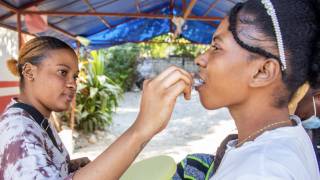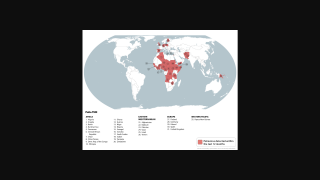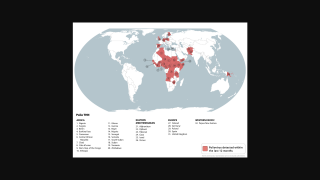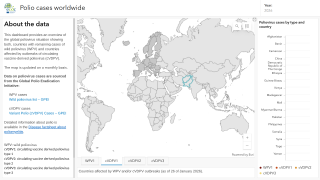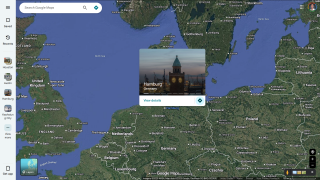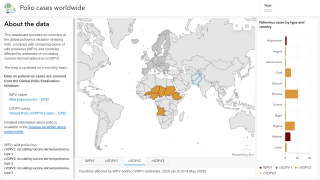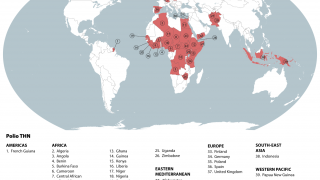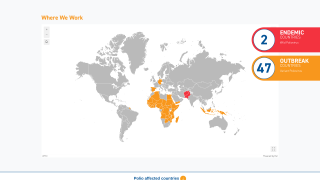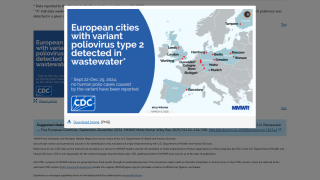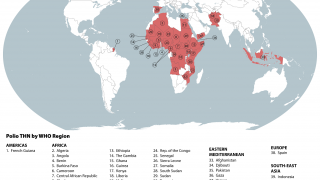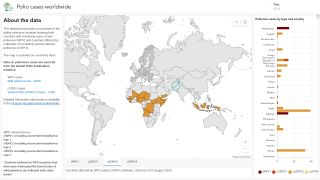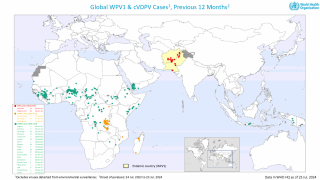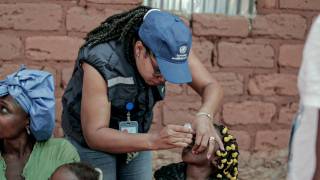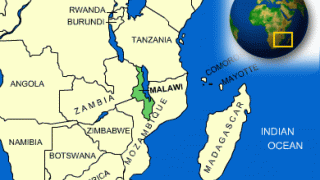Polio Remains a Global Risk to International Travelers

In light of the ongoing spread of poliovirus and the detection of polio disease in various countries, the Forty-second meeting of the Emergency Committee under the International Health Regulations was recently convened by the WHO Director-General.
The Emergency Committee reviewed data on wild poliovirus (WPV1) and circulating vaccine-derived polioviruses (cVDPV) in the context of the global goals to interrupt WPV1 transmission and achieve certification of its eradication by 2027.
As well as to interrupt and certify the elimination of cVDPV2 by 2029.
Based on the current situation regarding WPV1 and cVDPVs, along with reports from the affected countries, the Director-General accepted the Committee's updated assessment.
As of July 11, 2025, the Director-General determined that the poliovirus situation still constitutes a Public Health Emergency of International Concern for both WPV1 and cVDPV.
The WHO's leader endorsed the Committee's recommendations for countries defined as 'States infected with WPV1, cVDPV1, or cVDPV3 with potential risk for international spread,' 'States infected with cVDPV2 with potential risk for international spread,' and 'States previously infected by WPV1 or cVDPV within the last 24 months,' effective July 11, 2025, and for an unlimited amount of time.
The United States was added to this list in 2022 but was removed in 2024.
As of July 31, 2025, the WHO recommends preventive vaccination for countries reporting poliovirus detections.
This includes ensuring that all residents and long-term visitors of all ages receive a dose of bivalent oral poliovirus vaccine (bOPV) or inactivated poliovirus vaccine (IPV) between four weeks and 12 months before international travel.
"To prevent poliovirus from being reintroduced into the United States, the polio vaccine is routinely administered as a four-dose series during early childhood. While the vaccine provides long-term protection, immunity can wear off over time," Jeri Beales, MSN, RN, informed Vax-Before-Travel.
"That's why the CDC recommends adults aged 18 and older who are traveling to countries with ongoing polio cases receive a single lifetime booster dose. This one-time booster should be given several weeks before travel to ensure optimal protection."
"Parents traveling internationally to countries where polio remains a risk should ensure their children are fully vaccinated before departure. In the United States, only the inactivated polio vaccine (IPV) has been used since 2000, and it can be safely administered alongside other routine or travel-related vaccines."
"While pediatricians typically offer the polio vaccine as part of routine care, most adult primary care clinics do not stock it. Adult travelers may need to visit a travel clinic or local health department to receive the polio vaccine," added Beales, who leads Destination Health Clinic, a Boston-area travel health provider specializing in health education and vaccination for international travelers.
The WHO Committee also noted that the novel OPV2 vaccine continues to demonstrate greater genetic stability compared to Sabin OPV2. Since May 2021, approximately 1.2 billion nOPV2 doses have been administered in more than 35 countries.
However, the risk of new cVDPV2 emergence increases when the interval between outbreak response campaigns exceeds four weeks or when vaccination quality is suboptimal, underscoring the need for timely and high-quality immunization efforts.
To alert international travelers to the current polio risk, the U.S. CDC has issued a Travel Health Advisory that identifies 41 countries. For example, the National Institute of Health in Islamabad, Pakistan, has confirmed 18 cases in 2025. Last year, Pakistan reported 74 polio cases.
The CDC highly recommends that international travelers be fully immunized when visiting these countries.
Additionally, the CDC endorses IPV booster shots for some travelers.
In the United States, various travel clinics and pharmacies offer the IPV vaccine.
Our Trust Standards: Medical Advisory Committee

